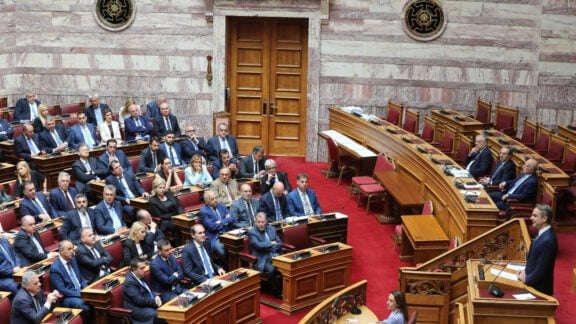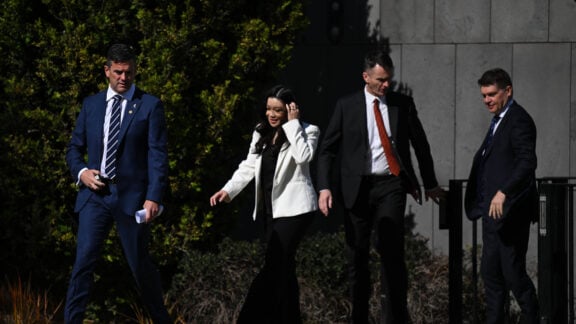Some weeks ago, prime minister Julia Gillard announced in parliament that her government would be soon legislating to institute a carbon tax on the Australian economy, and that, in the interim, it was her intention to ‘wear out shoe leather’ stumping the country and answering questions that the Australian public might have about this initiative.
After one day of shoe-leather action in a shopping centre in Queensland where she was upbraided by a shopper who wanted to know why Gillard had promised not to bring in a carbon tax during the election campaign, the prime minister changed tack and began talking about anything other than the carbon tax. In a way this represented clever politics.
Having committed her government to this idea in the clumsy way that she did, Gillard’s goal has been to try to divert public attention away from the carbon tax and focus instead on things that Labor thinks it’s good at, including education policy, health, social services and the like. Now, all of this would have been fine and dandy had the national political debate not taken the turn that it did when the parliament resumed, and, for this, Gillard can thank her comrades in the labour movement.
Within the ranks of the Labor Caucus are a number of former trade union officials, and one of these – the member for Dobell in New South Wales, Craig Thomson – has been at the centre of a whirlwind of controversy amid revelation that, when he had been national secretary of the Health Services Union, a number of transactions on the union expense account had been authorised to pay for services that appeared to have little to do with trade union business. No such accusation of untoward behaviour would be complete without reference to sexual scandal, and, indeed, citizen Thomson has been accused of utilising ‘escort services’ via the union credit card. All of this dirt has come out via the union he used to lead, giving us all an insight in to how bitter internal power struggles within Labor’s affiliated unions can be.
To say that the Gillard Government needed the eruption of this scandal on to the public debate at this time like it needed a hole in the head would be a serious understatement.
The core problem for Gillard is that she leads a minority government and requires the support on the floor of the House of Representatives of every able bodied member of the Labor Caucus she can must plus a few others. Poor old Thomson, who has clearly been told to sit tight in the parliament and keep his mouth shut (it was his interview with a talk-back radio station to respond to the aforementioned allegations that kicked off this latest round of the controversy), can’t be taken out the back and quietly put down (in a political sense, of course).
On the contrary, the bottom line is that Gillard needs Thomson: were Gillard in command of a lower house majority, the prime minister and the party would have surely cut Thomson adrift. She’s not the only one tied to Thomson’s short-term future. The quartet of Greens and independents, complete with their record of sanctimonious proselytising about the need for ‘good’ and ‘ethical’ parliamentary government can’t let Thomson go down either, for he will surely take Oakeschott, Windsor, Wilke and maybe even Bandt down with him at the subsequent poll.
It’s not uncommon for prime ministers to have to deal with scandals – indeed, John Howard had plenty of them to deal with over his long tenure as prime minister. However, the precarious nature of the parliament, and the sense that the Gillard government might be on the verge of collapse because of its reliance on cross-bench MPs has heightened interest in, and a frenzied reaction to this scandal particularly in the press. It’s this sense of press frenzy that is significant to note. This tends to happen when political commentators can see how a regularly occurring event (such as a revelation of a personal scandal) might have a more immediate impact on the short-term political environment given the circumstances in which it arises.
The Gillard Government, in a minority situation, needs to defend one of its own however distasteful that may appear to be. If enough pressure is applied, perhaps that resolute defence may crack and, if so, momentous political consequences will be the result. If there is one thing political journalists hanker for is the sense that brought down a government. Press frenzies are a sign that a government is in serious trouble.
There are other observable signs of a government in its terminal throes, including an ever increasing number of announcements by sitting MPs of their intention to retire and not contest the next poll. Significantly, at the end of a parliamentary session where the government was hoping to talk about policy but ended up defending the member for Dobell, news of intending parliamentary departures amongst the Labor ranks emerged.
The end is nigh, although, as long as the member for Dobell (who will surely lose his seat at the next election) hangs on, that end may still be some months off.








